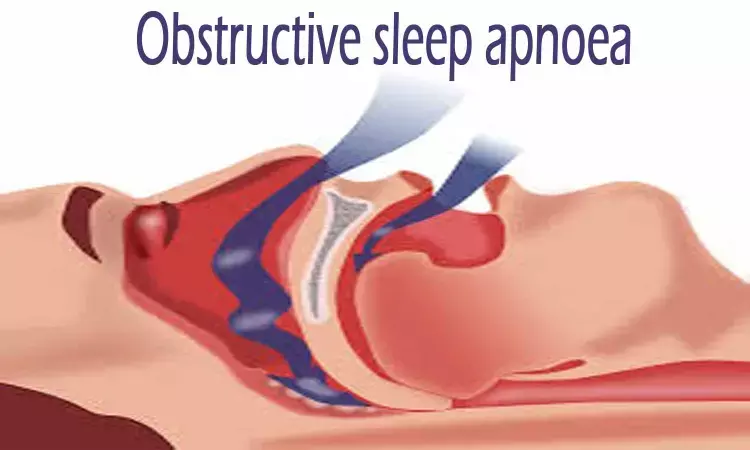- Home
- Medical news & Guidelines
- Anesthesiology
- Cardiology and CTVS
- Critical Care
- Dentistry
- Dermatology
- Diabetes and Endocrinology
- ENT
- Gastroenterology
- Medicine
- Nephrology
- Neurology
- Obstretics-Gynaecology
- Oncology
- Ophthalmology
- Orthopaedics
- Pediatrics-Neonatology
- Psychiatry
- Pulmonology
- Radiology
- Surgery
- Urology
- Laboratory Medicine
- Diet
- Nursing
- Paramedical
- Physiotherapy
- Health news
- Fact Check
- Bone Health Fact Check
- Brain Health Fact Check
- Cancer Related Fact Check
- Child Care Fact Check
- Dental and oral health fact check
- Diabetes and metabolic health fact check
- Diet and Nutrition Fact Check
- Eye and ENT Care Fact Check
- Fitness fact check
- Gut health fact check
- Heart health fact check
- Kidney health fact check
- Medical education fact check
- Men's health fact check
- Respiratory fact check
- Skin and hair care fact check
- Vaccine and Immunization fact check
- Women's health fact check
- AYUSH
- State News
- Andaman and Nicobar Islands
- Andhra Pradesh
- Arunachal Pradesh
- Assam
- Bihar
- Chandigarh
- Chattisgarh
- Dadra and Nagar Haveli
- Daman and Diu
- Delhi
- Goa
- Gujarat
- Haryana
- Himachal Pradesh
- Jammu & Kashmir
- Jharkhand
- Karnataka
- Kerala
- Ladakh
- Lakshadweep
- Madhya Pradesh
- Maharashtra
- Manipur
- Meghalaya
- Mizoram
- Nagaland
- Odisha
- Puducherry
- Punjab
- Rajasthan
- Sikkim
- Tamil Nadu
- Telangana
- Tripura
- Uttar Pradesh
- Uttrakhand
- West Bengal
- Medical Education
- Industry
Reboxetine and oxybutynin combo may be promising treatment of sleep apnea

Targeting a condition suffered by nearly a billion people worldwide, a new study from Flinders University has shown a drug previously used to treat depression can reduce obstructive sleep apnoea (OSA) severity.
While not yet identifying a cure, the authors say the study opens up further avenues for the development of future drug treatments targeted at the huge number of people unable to tolerate current sleep apnoea therapies, such as continuous positive airway pressure (CPAP) machines.
"Obstructive sleep apnoea can be a debilitating disease, causing poor quality sleep at night and sleepiness during the day," says study lead author Dr Thomas Altree from FHRMI: Sleep Health (formerly the Adelaide Institute for Sleep Health).
"It affects millions of Australians and causes major impacts on health and productivity.
"Recent research found a combination of the medicines reboxetine and oxybutynin, which were both previously used for unrelated conditions, could be an effective treatment for obstructive sleep apnoea but can cause side effects.
"We wanted to see if reboxetine on its own could be effective and assess exactly how it changes breathing during sleep."
The team ran a double blind, placebo controlled, randomised, multicentre cross-over trial with collaborators at the Woolcock Institute in Sydney (following a gold standard for drug trials) with 16 people who had OSA. They tested single doses of reboxetine compared to a combination of reboxetine and oxybutynin or placebo.
"Our results showed that reboxetine on its own can reduce sleep apnoea severity," says Dr Altree.
"We found the drug reduced the number of sleep apnoea events per hour and also improved oxygen levels, while the addition of oxybutynin didn't cause additional improvements.
"We also used a state-of-the-art computing method to determine how the drug stabilises breathing during sleep, which allows us to identify which patients might benefit most from the drug in the future."
The team's findings present the first evidence that reboxetine alone reduces OSA severity, and provides further insight into the role of norepinephrine reuptake inhibitors on upper airway stability during sleep.
"The current gold-standard treatment of sleep apnoea is with a CPAP device during sleep. But this one-size-fits-all approach doesn't address the fact that there are different causes for sleep apnoea. In addition, many people can't tolerate CPAP in the long term," says Dr Altree.
"It's therefore important we discover other avenues to assist people, and this study provides an important step for future drug development."
Reference:
Thomas J. Altree, FRACP, Atqiya Aishah, BSc (Hons), Kelly A. Loffler, PhD, Ronald R. Grunstein, FRACP, PhD, Danny J. Eckert, PhD https://doi.org/10.5664/jcsm.10256
Dr Kamal Kant Kohli-MBBS, DTCD- a chest specialist with more than 30 years of practice and a flair for writing clinical articles, Dr Kamal Kant Kohli joined Medical Dialogues as a Chief Editor of Medical News. Besides writing articles, as an editor, he proofreads and verifies all the medical content published on Medical Dialogues including those coming from journals, studies,medical conferences,guidelines etc. Email: drkohli@medicaldialogues.in. Contact no. 011-43720751


